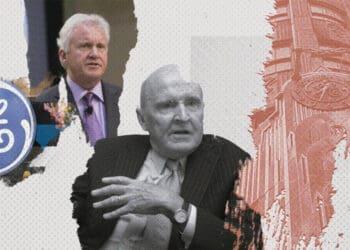co-written by William “Widge” Devaney
This is part three of a three-part series revisiting key FCPA enforcement actions and developments in 2013. Click the following links to read parts one and two.
Legislative and Regulatory Action
Since the issuance of the DOJ’s and SEC’s FCPA Guidance in November 2012, FCPA legislative reform efforts have lost some steam. However, as described below, industry representatives continue to press the DOJ and SEC for further clarification of key FCPA provisions, identifying “several areas of continuing concern for businesses seeking in good faith to comply with the FCPA.”[1]
Specifically, in a letter dated February 19, 2013, the U.S. Chamber of Commerce stated that the Guidance fails to assure businesses that the DOJ and SEC are giving appropriate weight to strong corporate compliance programs. The Chamber’s letter also points out that the Guidance fails to clearly define who is a “foreign official” under the FCPA or to illustrate, through examples or hypotheticals, what third-party due diligence is expected in foreign markets. The Chamber’s letter also asks the DOJ and SEC to make disclosure of declination decisions a regular practice so there is increased transparency into their decision-making process.
The SEC and DOJ have expressed little interest in revisiting the Guidance in the near future. However, the House recently adopted an amendment to a military appropriations bill that would make debarment automatic for companies that have been convicted, had a civil judgment entered against them or been charged with a number of offenses, including fraud. In drafting the amendment so that it applies to companies that have only been charged, it would necessarily apply to companies under deferred prosecution agreements. Currently, companies must certify that they have not been convicted or been subject to a civil judgment or been charged with certain offenses including fraud, embezzlement and bribery; however, the government is permitted to award contracts to companies that cannot provide the certifications.
Additionally, in the last FCPA Snapshot, we reported that things were heating up on the Dodd-Frank front. This continued through 2013, with several important developments in pending Dodd-Frank whistleblower retaliation lawsuits.
- Meng-Lin Liu v. Siemens A.G. – In January, 2013 Meng-Lin Liu, a former employee of Siemens A.G.’s Chinese affiliate, sued Siemens under the Dodd-Frank whistleblower anti-retaliation provisions in the U.S. District Court for the Southern District of New York, alleging that Siemens unlawfully fired him after he alerted his supervisors that Siemens had continued to bribe foreign officials in China, in violation of both the FCPA and the FCPA-related settlement agreement Siemens reached with the DOJ in 2008. The Court granted Siemens’s motion to dismiss in October, holding that the Dodd-Frank whistleblower protections do not apply outside of the United States. Noting that it was a case involving a Taiwanese resident suing a German corporation for acts committed by its Chinese subsidiary in China and North Korea, the Court concluded that “[t]here is simply no indication that Congress intended the Anti-Retaliation Provision to apply extraterritorially.”
- Disagreement is growing between courts as to whether a person must report alleged corruption to the SEC before the retaliation occurs in order to qualify as a whistleblower. In July, the Fifth Circuit upheld the District Court’s dismissal of Asadi v. G.E. Energy (USA), LLC. The Fifth Circuit based its ruling on a finding that that Khaled Asadi was not entitled to whistleblower protections because he reported wrongdoing internally and was dismissed before any report was made to the SEC. Several district courts around the country have disagreed with the Fifth Circuit’s interpretation and found that such employees are entitled to the Dodd-Frank protections. This is likely to be an area of ongoing litigation due to inconsistencies, tension and ambiguity between the statute and the SEC regulations.
Non-U.S. Anti-Corruption Enforcement
Like previous years, 2013 has continued to be an active period for non-U.S. anti-corruption enforcement.
The United Kingdom
July 1, 2013, marked the second anniversary of the U.K. Bribery Act’s taking effect. Unlike the FCPA, which prohibits bribery of foreign government officials only, the U.K. Bribery Act criminalizes all commercial bribery, as well as accepting a bribe. Additionally, unlike the FCPA, the U.K. Bribery Act does not contain a facilitation payment exception, and there is a strict liability offense for corporations that fail to prevent bribery.
- Early enforcement of the Bribery Act has been underwhelming in part because the Bribery Act’s provisions are not retroactive. In 2012, the only prosecutions under the Bribery Act involved domestic bribes in small denominations. This appears to be changing, albeit slowly. The most notable 2013 use of the Bribery Act was charges against four employees of Sustainable AgroEnergy for an allegedly fraudulent scheme against investors involving biofuel investments in Cambodia. Additionally, demonstrating that the Serious Fraud Office (SFO) is ready to take on larger Bribery Act investigations, both it and Rolls-Royce confirmed in December 2013 that the SFO had opened a criminal investigation into possible bribery by Rolls-Royce in Indonesia and China. Furthermore, in 2013, both the SFO and the City of London Police department issued statements that they expect the number of Bribery Act cases to rise. David Green, the head of the SFO, gave a speech in October, stating that the SFO was currently developing several cases, warning “those who are impatient for the first prosecution under the Bribery Act . . . watch this space.”
- Moreover, U.K. authorities continue to prosecute actions under previous bribery statutes. In April, the U.K. Financial Services Authority[2] fined EFG Private Bank Ltd. more than £4 million because of lapses in its financial controls. The EFG Group’s U.K. branch failed to fully implement its anti-money laundering regime, despite having more than 400 accounts held by high-net worth individuals from international jurisdictions who were found to present a high risk of money-laundering and bribery.
- The U.K. has also refined its criminal laws in ways that will influence the Bribery Act, for example, by (1) permitting deferred prosecution agreements (DPA) and (2) publishing guidelines for sentencing both individuals and corporations for fraud, bribery and money laundering offenses. The SFO expects to begin using DPAs in early 2014.
China
In 2013, Chinese President Xi Jinping bolstered widespread efforts to root out Chinese corruption by placing a strong public focus on prosecutions of Chinese government officials for corruption. The Chinese government also ramped up investigations of private companies and individuals, especially pharmaceutical manufacturers, at least seven of which are reported to be under investigation by the Chinese government, including: Baxter International, Inc.; Sanofi, S.A.; AstraZeneca; H.Lundbeck A/S and GlaxoSmithKline (GSK). In June 2013, four GSK executives, all of whom are Chinese nationals, were detained in connection with bribery allegations. Additionally, a British GSK executive had been barred from leaving the country and returning home. Chinese authorities allege that GSK employees paid nearly $500 million in bribes to Chinese officials and doctors in order to promote sales. These allegations are particularly problematic for GSK given its recent completion of a four-month internal investigation of Chinese business in which it stated it had uncovered no evidence of corruption or bribery. Chinese authorities also detained a salesperson from AstraZeneca. Although the reasons for the detention are still unclear, AstraZeneca emphasized that it has rigorous anti-corruption protocols in place for its Chinese operations.
Russia
On January 1, 2013, a new Russian anti-corruption law took effect that requires corporations doing business in Russia to increase their anti-corruption compliance efforts. The new law also mandates expansive asset disclosures by Russian government officials and their families. The law comes on the heels of Russia becoming a signatory to the OECD Anti-Bribery Convention, which, among other things, establishes international standards for criminalizing bribery of public officials. Furthermore, in May 2013, Russia barred some classes of Russian government officials from using foreign bank accounts and/or owning foreign securities. Although some have criticized the “Law on Foreign Accounts” as merely an attempt to strengthen the Russian economy by pushing more assets in to Russian banks, the Russian government has argued that the measure will prevent corrupt government officials from hiding assets abroad.
India
The serious anti-corruption legislative reform efforts that began in India in 2012 seemed to have been stalled somewhat in 2013, but the Indian Parliament gave final approval to an anti-corruption bill in December. The bill empowers an independent ombudsman to investigate corruption involving civil servants and politicians. In addition, Indian law enforcement officials have been actively policing corruption. For example, they recently launched an investigation into a European defense group over bribery allegations related to its procurement of a military hardware contract. An executive of Rheinmetall Defense AG, another European arms-maker, is also under investigation by Indian authorities for allegedly making corrupt payments to Indian government officials in an effort to prevent the arms-maker from being placed on a government blacklist of corporations suspected of corruption.
Canada
Canadian lawmakers made significant amendments to their Corruption of Foreign Public Officials Act (CFPOA) in 2013. These amendments include: raising the maximum criminal penalties for bribing foreign officials, removing the facilitation payment exception and adding “book-and-records” provisions. Furthermore, in January 2013, Canadian prosecutors charged Griffiths Energy International, an oil and gas exploration company, with violations of the CFPOA, stemming from allegations that the company made illegal payments to government officials in Africa in order to secure oil and gas leases. At the close of 2013, Canadian authorities had approximately 34 open cases involving potential CFPOA violations. Finally, Canadian authorities secured their first conviction of an individual under the CFPOA in August, a man accused of participating in a conspiracy to bribe Air India.
Brazil
Political protests in Brazil caused a languishing bill – the Brazilian Clean Companies Act – to become law and will likely bring Brazil in line with OECD anti-corruption standards. The new law establishes strict liability for Brazilian legal entities, as well as foreign legal entities, with a “registered office, branch or representation in the Brazilian territory.” It broadly prohibits bribery of public officials, “bid rigging” and other frauds in the procurement process and efforts to interfere with public agencies’ audits or investigations. Sanctions could range from 1 percent to 20 percent of an entity’s gross revenue from the prior year (or from $3,000 to about $26 million, if revenue is too difficult to calculate). Entities found liable can also be dissolved, suspended, face forfeiture, debarment, loss of public contracts or prohibitions on government incentives and public financing. Like the FCPA and the Bribery Act, the Clean Companies Act will encourage entities under investigation to cooperate with authorities and disclose suspected wrongdoing. Also, like the Bribery Act, the Clean Companies Act gives credit to companies that have effective compliance programs in place. As the law has only recently been promulgated, it is not possible to determine how effective it will be in policing corruption. However, the law will certainly add to the growing tapestry of anti-corruption legislation throughout the world.
Germany
In 2013, German prosecutors aggressively pursued foreign bribery allegations, as highlighted by the criminal charges leveled against Former German President Christian Wulff for allegedly receiving bribes. Wulff was accused of lobbying to help market a movie, John Rabe, after the film’s producer paid Wulff’s expenses worth thousands of euros during a trip Wulff took with his family in 2008.
German lawmakers have also amended national anti-corruption laws to increase monetary penalties 10-fold for internal controls failures and negligent conduct. These amendments to the German Administrative Offenses Act, which became effective June 30, 2013, also gave courts accelerated power to freeze the assets of corporations, making it easier for German courts to pursue corruption cases against foreign entities.
International Cooperation
Finally, in 2013, the trend of cooperation between international regulators continued. As Acting Assistant Attorney General Mythili Raman noted in a speech to the Global Anti-Corruption Conference in June 2013, there has been an “important shift in the anti-corruption realm – the development of stronger anti-bribery enforcement programs in foreign countries, the continuing and encouraging rise in cross-border cooperation and the increasing efforts of our foreign law enforcement partners to hold individual perpetrators accountable.” This shift has been readily apparent in the ongoing cooperation between U.S. and French authorities in the Total S.A. case in 2013. In addition to U.S. penalties described above, Total S.A. may be subject to French enforcement actions. In May 2013, French authorities recommended that criminal charges be brought in France against Total S.A., one of its senior officers and two Iranian nationals.
DOJ and SEC officials also highlighted cross-border cooperation in other enforcement actions this year. In a press release heralding the criminal indictment of two former executives of a French power company for bribing Indonesian officials, the DOJ noted that it had “worked closely with its law enforcement counterparts in Indonesia.” In other press releases, the DOJ noted the assistance of Mexican and Panamanian law enforcement authorities in its prosecution of four former executives of BizJet International Sales and Support, Inc. The SEC acknowledged the cooperation of the UK’s Crown Prosecution Service and Metropolitan Police in its enforcement action against Parker Drilling Company. The DOJ expressed its appreciation for the assistance of German authorities who also assisted in the investigation of Archer Daniels Midland.
Thanks to Lindsay Meyer, Joanna Breslow Boyd, Victoria Danta, and countless others at Venable LLP for their contributions to this piece.
[1]Business Community Responds to FCPA Enforcement Guidance by DOJ and SEC, United States Chamber of Commerce, Feb. 19, 2013, available at http://www.uschamber.com/press/releases/2013/february/business-community-responds-fcpa-enforcement-guidance-doj-and-sec.
[2]The U.K. Financial Services Authority has since been eliminated. It was replaced by the Prudential Regulation Authority and Financial Conduct Authority in April 2013.
__________________
About the Authors
 Jan Handzlik is a litigation partner in Venable’s Securities Enforcement & White-Collar Defense Practice Group, and co-chair of the firm’s Foreign Corrupt Practices Act (FCPA) and Anti-Corruption practice.
Jan Handzlik is a litigation partner in Venable’s Securities Enforcement & White-Collar Defense Practice Group, and co-chair of the firm’s Foreign Corrupt Practices Act (FCPA) and Anti-Corruption practice.
 William “Widge” Devaney is co-chair of Venable’s Foreign Corrupt Practices Act (FCPA) and Anti-Corruption practice.
William “Widge” Devaney is co-chair of Venable’s Foreign Corrupt Practices Act (FCPA) and Anti-Corruption practice.














